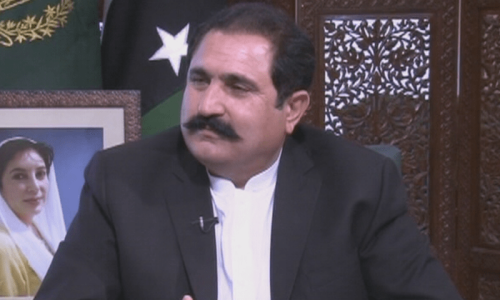THE recent establishment of a committee by the Sindh government for the welfare of prisoners is a significant step towards prison reforms. Notified under Section 55 of the Sindh Prisons and Corrections Services Act, 2019, the committee is tasked with addressing the needs of prisoners and improving their conditions.
Sindh is the only province to have revised age-old colonial laws that govern Pakistan’s prison system by enacting the aforementioned law. The Sindh Prisons and Corrections Services Rules framed under Section 80 of the Act span 162 pages. They are very comprehensive, indicating a detailed approach to reforming Sindh’s prison system.
Conversely, the law for prisons in the other three provinces still reflect the influence of the Raj, with many laws and practices originating from that era. The Prisons Act, 1894, the Prisoners Act, 1900, and the Prisons Rules, 1978, are the main laws currently in use in the country (except Sindh). These punitive laws contain the elements of colonial governance.
The law regarding prisons in Sindh is comparatively reformative; it aligns with the principles of dignity and advocates for transforming the prison system into a rehabilitative and educational service. The committee provides free legal aid to prisoners. Additionally, an early learning centre and children’s playrooms have been established in women’s prisons in Karachi and Hyderabad. The committee also provides football training camps to juveniles in Karachi and mental health services and sewing classes to women prisoners.
Sindh’s prison law aligns with the principles of dignity.
Although significant improvements are needed, with particular reference to overcrowding and the need for expansion of recreational and rehabilitative facilities in all prisons in Sindh, the progress made so far is appreciable.
Sindh is also the only province to constitute a provincial human rights commission. The Sindh Human Rights Commission has been mandated by the Sindh Protection of Human Rights Act, 2011, to visit any jail or institution where persons are detained to make recommendations for improving their conditions. This works as a check-and-balance mechanism supplemented by laws at the federal level, such as the Torture and Custodial Death (Prevention and Punishment) Act, 2022, which provides “protection to a person during custody from all acts of torture perpetrated by public officials”.
Other federal laws, such as the Juvenile Justice System Act, 2018, protect juvenile offenders through the establishment of rehabilitation centres, focusing on the eventual reintegration of juveniles into society.
Unfortunately, there is a notable absence of empathy within the populace when it comes to addressing the human rights of prisoners. There is a common belief that prisoners are responsible for their own misfortune. This belief results in the lack of societal support for the well-being of prisoners. Consequently, the absence of public concern translates into a lack of government attention to the issue. If one is inclined to believe that prisoners deserve to live in poor conditions because of their own actions, the thought merits reconsideration.
Pakistan was ranked 130th out of 142 countries on the application of the rule of law and 99th on the effectiveness of its criminal justice system by the World Justice Project in 2023. These rankings underscore the significant prevalence of both wrongful convictions and wrongful prosecutions across the country.
According to a 2023 report released by Justice Project Pakistan, overcrowding in prisons is a widespread issue with some jails operating at over 200 per cent of their mandated capacity. This underscores the bleak conditions in which prisoners are incarcerated.
Whether guilty or innocent, every prisoner has the fundamental right to dignity under Article 14 of the Constitution. The Supreme Court stated in the Raja Azmat case that ‘’treatment of prisoners in overcrowded and inadequately equipped prisons profoundly affects constitutionally guaranteed rights”.
Pakistan ratified the International Covenant on Civil and Political Rights in 2010. It provides in Article 10 that “all persons deprived of their liberty shall be treated with humanity and with respect for the inherent dignity of the human person”.
The 18th Constitutional Amendment, 2010, allows for efficient governance structures through the delegation of powers from the central government to the provincial level. Other provinces across Pakistan should draw inspiration from the pioneering prison reforms initiated by Sindh and enact reformative prison laws.
The true measure of a nation can only be determined by how it treats its most marginalised members, among them those languishing in prison.
The writer is a barrister of Lincoln’s Inn and an advocate of the high courts of Pakistan.
Published in Dawn, April 4th, 2024













































Dear visitor, the comments section is undergoing an overhaul and will return soon.